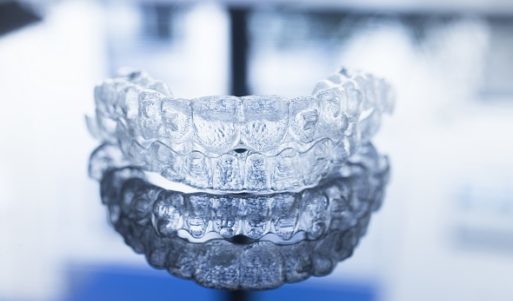 Cavities and gum disease are common dental terms, and most people understand what they mean, but dental health issues don’t always fall into those categories. Bruxism, for instance, is a common problem that many patients don’t realize they have until symptoms become prominent. The clinical name for unconscious teeth-grinding, bruxism describes the persistent, uncontrollable tendency to clench and grind teeth, and it often occurs while a patient is sleeping. If you suffer from bruxism, then your dentist can tell by inspecting your teeth for signs of excessive wear and damage.
Cavities and gum disease are common dental terms, and most people understand what they mean, but dental health issues don’t always fall into those categories. Bruxism, for instance, is a common problem that many patients don’t realize they have until symptoms become prominent. The clinical name for unconscious teeth-grinding, bruxism describes the persistent, uncontrollable tendency to clench and grind teeth, and it often occurs while a patient is sleeping. If you suffer from bruxism, then your dentist can tell by inspecting your teeth for signs of excessive wear and damage.
How it Happens
Unlike cavities and gum disease, bruxism isn’t a product of poor hygiene and plaque buildup. In fact, the causes of bruxism differ from patient to patient, and can include dental issues like crooked teeth or an uneven jawbone, as well as more general concerns like excessive stress. Because it can happen for different reasons, bruxism treatment is highly personalized and designed to address the specific factors that contribute to each patient’s condition.
What to Do
If your dentist determines that you have bruxism, then treating it should be imperative before your teeth sustain excessive damage. Your treatment plan will depend on your specific needs, and may include orthodontic treatment or other measures to return balance to your bite. In some cases, bruxism can be treated simply with a custom-designed mouthguard, which protects your teeth while you sleep to prevent them from grinding against each other.







